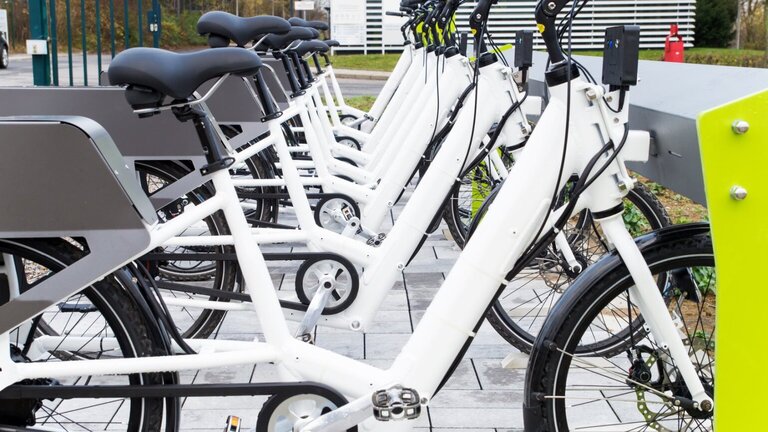Getting a ride to the train station, continuing the journey by train, and covering the last few meters to work on an electric bicycle: workday travel is not as easy as this in every German city. With long waiting times and a lack of connections and stops, many people resort to using their own cars. The result is rising levels of air pollution, mainly in the form of particulate matter (PM) and nitrogen dioxide (N02), and a deteriorating quality of life in cities. With the Green City Plan, Dresden wants to counteract such developments so that it not only meets the air quality standards set down by EU guidelines, but exceeds them. As one of the main causes of emissions, road traffic is a good starting point for reducing air pollution.
Various project partners worked with the city between January and July 2018 to develop the Green City Plan, along with practical measures for controlling air pollution in Dresden. The plan includes ten main areas for action and 17 individual measures. Digital transformation and electrification play a key role in its implementation. Deputy Mayor Eva Jähnigen, in charge of environment and municipal utilities, explained: ‘We want to move further towards environmentally friendly mobility in Dresden. To do this, we have to implement suitable proposals from the Green City Plan now so that more commuters switch to bikes, public transport or electric cars.’ For instance, masterplan provides for the city and the surrounding area to have at least 76 ‘intermodal mobility points’, where road users can quickly switch between different means of travel, such as bicycle, tram, or car sharing – including electric cars. The first mobility point, at Pirnaischer Platz in the city, has been operational since September 21, 2018.
In addition to the city-wide public charging station infrastructure for electric cars, the city also wants to build up a cargo bicycle rental system – including electric bikes. There are precedents for this in countries such as Denmark and the Netherlands. The extension of the bike path network and a kind of bicycle satnav – the journey planner for bikes – are intended to make the switch to environmentally friendly means of transport easier for the city’s inhabitants. Dresden also plans to extend commuter parking lots and replace older diesel buses.
To actually improve the air quality in Dresden, interaction between different but coordinated measures is important. An integrated approach to the city’s development and infrastructure is crucial if the quality of life is to be improved. For this reason, as Andy Brunner, Senior Project Partner at Drees & Sommer SE with responsibility for the city of Dresden, explained: ‘The project team assessed and prioritized possible measures using a special assessment method.’ The project partners include the city of Dresden and the city’s municipal transport company, Dresdner Verkehrsbetriebe AG, in addition to external partners such as international project management and consulting company Drees & Sommer, lead project partner VDI/VDE Innovation + Technik GmbH, and transport planners Verkehrsplanung Köhler und Taubmann GmbH. The transport planning company also received support for the evaluation and assessment of the measures from the Chair of Transport Ecology at Technische Universität Dresden and the Institute for Energy and Environmental Research (IEER) in the German city of Heidelberg. The project was supported by the German Federal Ministry of Transport and Digital Infrastructure.
